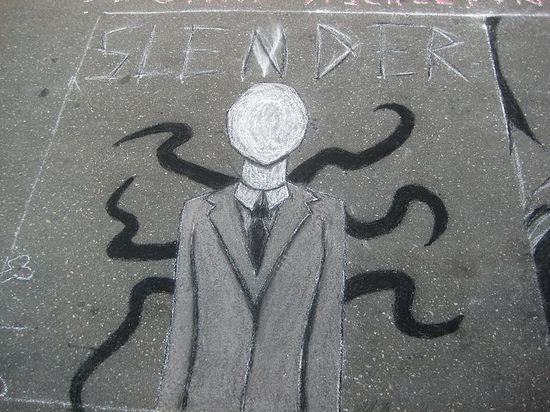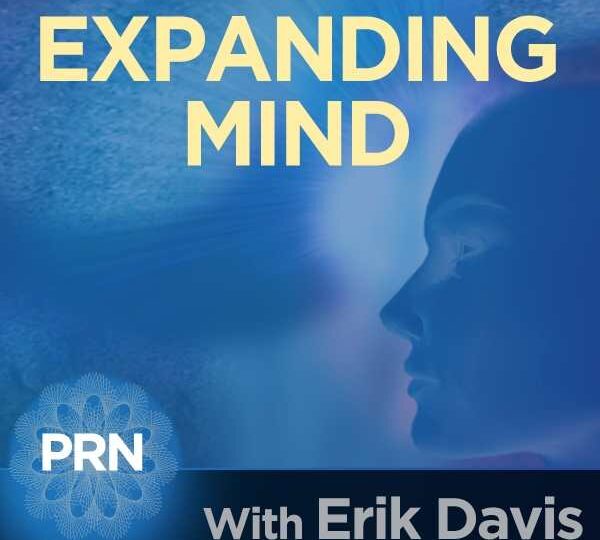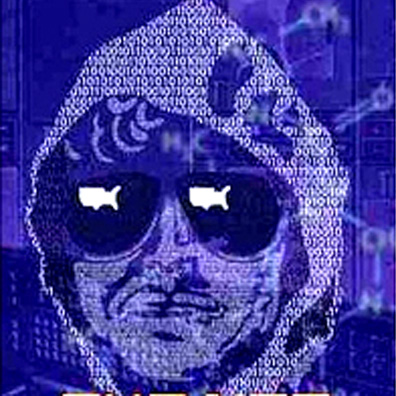
Weirdness, Slenderman, and Jackass occultism
VICE: Hi Erik. The phrase “follow your weird” has been associated with you. What do you mean by that?
Erik Davis: It’s what I did instead of getting a normal job. I followed weirdness and wrote about it. The exploration of the unusual became a way of being. Most of the interesting people I’ve met did the same thing; characters like Terrence McKenna and Robert Anton Wilson – those guys were very good at following their weird.
I was struck by the phrase one of you mentors used: “PhDs don’t impress me; people who have confronted the void impress me.” What impact did that kind of thinking have on your life?
When I heard that, something shifted inside. I realised that thinking, talking and reading fall short of encounters that go beyond ordinary thought. It’s important to keep portals open to those experiences.
Are you talking about taking psychedelics?
There are many portals. I have a lot of respect for psychedelics and the way they challenge, shatter and call forth new perspectives, but sometimes we can overemphasise the extreme experiences at the expense of looking for less stressful ways of keeping the mind open. Meditation, yoga and sexuality are all ways of pushing the limits of experience without shattering your perception.
Can you explain your concept of “techgnosis”?
Techgnosis describes the way in which technology is haunted by spiritual dreams, fears and hopes. We think that technology is a work of science, but if you look at how we use it, these supposedly rational devices are overwhelmed by the “irrational” parts of ourselves.
Give me an example of a haunted piece of technology.
The way we experience the power of computers very much recalls the old magicians who dreamt of devices that could give you all the information in the world – the ability to see into the past and to communicate over great distances.
So is the act of downloading similar to a magical ritual like the ones performed by renaissance magicians?
Renaissance magicians believed that by doing certain operations using codes, rituals and esoteric symbols, they could communicate with angelic forces, and these forces could give them information. A similar pattern of belief is operating in how we use technology today.

(Photo by Charles Kremenak)
You seem to have a more positive take on online life compared to those who say we’re creating more and more degrees of separation between ourselves and “true reality”, whatever that is.
No, actually [I don’t]. The techgnosis idea recognises the positive aspects and simultaneously acknowledges that online spaces are fraught with diabolical possibilities. The unnerving fact is that surveillance and manipulation is conceivable on a level never imagined before.
Also, for me, the spaces created by technology are infested with the spirit of the trickster, who is an archetype you find in many different cultures. The trickster appears as an inventive hero but also screws stuff up. He presides over liminal spaces where nothing is clear.
Let’s take Facebook – how does the trickster manifest there?
A lot of people think that Facebook is a groovy free service that allows them to communicate with their friends and family. They never expected Facebook to start manipulating their news feeds in order to see the effect on their emotions.
Okay, I get you. You’re aware of the Tulpa phenomenon – sentient beings imagined into existence, who then post messages online. What’s your take on this fusion of occultism and modern technology?
It seems now that these old techniques are being pulled out of their occult context and employed in the spirit of pure experiment. It’s like Jackass occultism. The “Three Kings Ritual” thread on Creepypasta is another example.
Do you see this kind of online occult activity as an extension of the counter-culture that began in the 50s and 60s?
Any alternative exploratory group that isn’t republican has some relationship to the counter-culture. The kids taking the bungee jump into ayahuasca space are clearly an extension of the old hippy movement. But I also think there are subcultures that are totally far out and new – tulpamancers and furries, for example.

Slender Man graffiti in Raleigh, North Carolina by unknown artist. Photo taken by Flickr user mdl70., https://www.huffpost.com/entry/slender-man-is-real-from_b_5481349
Slender Man graffiti in Raleigh, North Carolina by unknown artist. Photo by mdl70.
One thing that strikes me as very fresh is Slenderman – the first monster to emerge purely out of the internet.
Slenderman is significant because it has a real force. Think about it – what’s the difference between a fiction and a god? A god is a fiction that everyone believes in. Sometimes fictions can take on a similar kind of reality. Take Sherlock Holmes: in some senses he has more “reality” than your average detective in a crime novel. Reddit and Creepypasta have become venues for a self-aware experiment with that part of human consciousness – the way fictional characters can take on a life of their own.
That brings me to conspiracy theories. There seems to be a sliding scale of conspiracy theories, with David Icke and his lizard people at one end, and Russell Brand and his watered-down Illuminati at the other. What do you think that trend is all about?
It’s important to recognise that the term “conspiracy theory” is a derogatory term used against people who are sometimes pointing out very real, very harmful conspiracies. Power, in essence, takes the form of conspiracy. So even if you’re not a crazy left-winger, but a reasonable left-winger, there’s a lot of truth to seeing our current condition as the result of conspiracy.
But even if a given shadowy group exists, that doesn’t mean they have their hand on the lever any more than any of the other groups out there with their own crazy agendas. I see many manipulative groups: corporations, intelligence agencies, the super-rich, pranksters and transhumanist technologists. All these groups are making a move on the future, so if you go hunting for conspiracy you’re going to find it all over the place.
You’ve written about your early drug use being an initiatory experience. Would you recommend that teenagers take LSD?
It’s definitely not the kind of thing that I would blanketly recommend. There are a lot of people who should never do LSD. I can’t judge who they are, and you might not even know yourself. But, at the same time, you can’t know where it might be appropriate.
But due to technological changes, like the Oculus Rift, and the explosion in ayahuasca use, I think we’ll live in a much more psychedelic world in years to come.
When you say “psychedelic world”, do you mean a world where people take more psychedelics or a world where the general consciousness is more open?
A little of both. If you mix the alternative reality games of the Creepypasta world, the sound and light machines of rave culture and our increasing knowledge of the way the nervous system creates reality, then you won’t need to be taking any compounds in order to trip balls.
Thanks, Erik.




